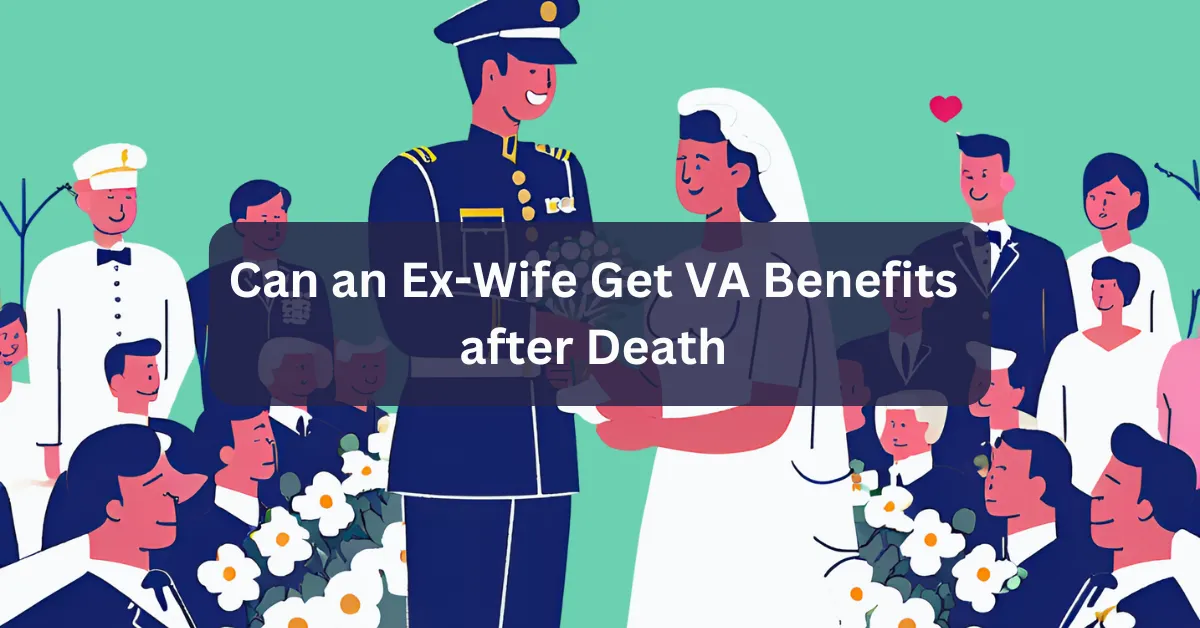Losing a loved one is never easy, and dealing with financial uncertainty afterwards can add to the stress. If you have an ex-wife, she may wonder whether she qualifies for VA benefits after your passing.
While most benefits go to current spouses, certain exceptions allow former spouses to receive support.
Understanding the VA’s rules on survivor benefits is crucial for determining eligibility. Factors like marriage duration, remarriage, and the type of benefit being sought all play a role.
This guide breaks down what an ex-wife may be entitled to, helping you or your family navigate this complex process.
Understanding VA Benefits for Spouses and Survivors
VA benefits offer financial and healthcare support to surviving spouses of veterans. These include
- Dependency and Indemnity Compensation (DIC)
- Survivor’s Pension and,
- CHAMPVA healthcare coverage
However, not all spouses automatically qualify, and the rules differ for ex-spouses.
The VA generally prioritizes current spouses when awarding survivor benefits. However, under certain conditions, former spouses may be eligible for some financial assistance.
Eligibility often depends on factors like the veteran’s service record, the length of the marriage, and whether the ex-spouse remarried.
There are differences between standard spousal benefits and those available to ex-wives is essential. If an ex-wife meets the criteria, she may still be entitled to support even after a divorce. The following section explores these requirements in detail.
Can an Ex-Wife Receive VA Benefits After the Veteran’s Death?
The VA does not automatically grant survivor benefits to ex-spouses, but exceptions exist.
One of the most significant factors is whether the former spouse was married to the veteran for at least 10 years while they served. Long-term marriages tend to carry more weight in eligibility decisions.
Dependency and Indemnity Compensation (DIC) is one of the most common benefits for survivors. An ex-wife may qualify for DIC if she did not remarry before age 57 and if the veteran’s death was service-connected.
Even if divorced, she could be eligible if the VA determines her dependent status remained intact.
Another potential benefit is the Survivor’s Pension, which is needs-based and primarily for low-income surviving spouses. If an ex-wife meets financial criteria, she may receive this benefit.
Additionally, CHAMPVA healthcare benefits may be available under specific conditions, such as a former spouse remaining unmarried.
Since each case is unique, reviewing eligibility requirements is crucial. If an ex-wife believes she may qualify, submitting an application with proper documentation is the next step.
Key VA Benefits for Eligible Former Spouses
Even though VA benefits are primarily designed for current spouses, some former spouses may still qualify. If an ex-wife meets specific eligibility criteria, she could receive financial or healthcare benefits.
Eligibility Criteria for DIC
- The veteran’s death is service-related and
- The former spouse has not remarried before age 57
Eligibility Criteria for Survivor’s Pension
Survivor’s pension is income-based. If an ex-wife has limited financial resources, she may be eligible.
Eligibility Criteria for CHAMPVA
Additionally, CHAMPVA healthcare benefits may be available if-
- The former spouse remains unmarried and meets the necessary criteria.
Each benefit has strict eligibility requirements, so it is necessary to verify qualifications before applying.
How to Apply for VA Survivor Benefits as an Ex-Spouse
Applying for VA survivor benefits as an ex-spouse requires gathering the right documentation and submitting a formal claim.
The first step is determining eligibility based on marriage length, remarriage status, and the veteran’s service record.
To apply for DIC or the Survivor’s Pension, an ex-wife needs to complete VA Form 21P-534EZ.
This form should be submitted along with supporting documents, such as the veteran’s service records, proof of marriage, and divorce decree.
For CHAMPVA healthcare benefits, the application process involves completing VA Form 10-10d and providing additional proof of eligibility. Claims can be submitted online, by mail, or in person at a VA regional office.
The approval process may take time, so it is important to follow up on the claim’s status. Seeking help from a Veterans Service Officer (VSO) can also improve the chances of a successful application.
Conclusion
VA benefits are primarily for current spouses, but some former spouses may still qualify. If an ex-wife meets the eligibility criteria, she could receive financial or healthcare support.
Understanding the process and applying correctly is crucial. If in doubt, seeking assistance from a VSO can make the process smoother.
